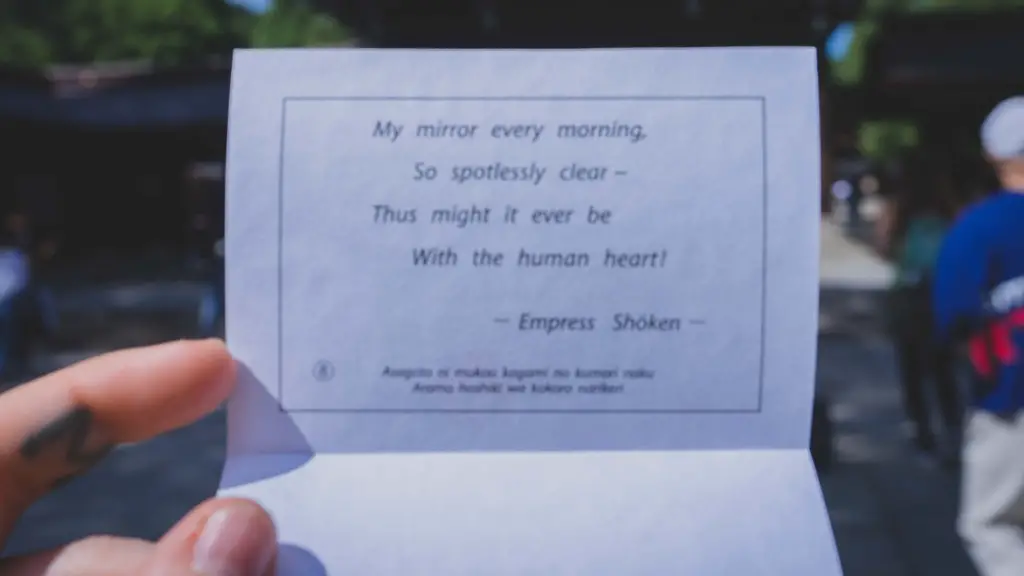Analysis of Dream Deferred by Langston Hughes
The poem “Dream Deferred” by Langston Hughes is a powerful statement about the animalistic human impulse to reach for a better life. In this poem, Hughes speaks out against discrimination, specifically racial discrimination, while simultaneously offering a glimpse into the black experience during the 1930s. Though its title strongly implies one thing, its actual message is much more complex and substantial.
The poem is written in a flowing, lyrical style. Its words parallel the idea of the dreams that the poem speaks of, as if its very lines were dream waves undulating and rippling against the shore. The poetic structure also helps emphasize the meaning of the poem – as Hughes’ words flow and his ideas piece together, it feels as though his dream is beginning to come to life. The repeated line of the poem, “What happens to a dream deferred?” is a stinging question that brings to light the struggles that African Americans faced during this era.
The poem paints a vivid imagery of a dream that does not find fruition. Hughes paints experiences and emotions for which, at the time, there were no words. He imbues the poem with feelings of frustration, anger, and fear, but the poem contains slivers of hope as well. Throughout its lines, Hughes speaks of the possibility of future generations chasing after the dream and ultimately succeeding in its accomplishment.
The poem is especially important in a modern context as it serves as an ode to perseverance. Despite the hardships and losses, people must continue to strive for that dream, whatever it may hold. Dream Deferred stands to remind readers of the importance of resilience – the only way to fight against dream deferred is through the strength to stand and never give up. The poem ultimately serves as a rallying cry to all discriminated people, a beacon shining in the darkness that guides towards hope and liberation.
The Poet and His Message
Langston Hughes is widely considered one of the most important and influential African American writers of the 20th century. Hughes was a prolific poet, novelist, playwright, and essayist who is known for his use of the spoken dialect of Blues and Jazz in his works. He was an avowed activist for social justice and spoke out against racism and segregation, with his works often being seen as a form of political protest.
The poem captures the frustration and despair that the poet, and countless others, must have felt during the 1930s – a period of immense racial injustice and discrimination in the United States. Through the poem, Hughes speaks on behalf of the oppressed and brings to attention the theme of racial conflict. The poem is his way of emphasizing the immense strength and hope that he, and all African Americans, were forcing against a tide of systemic prejudice and hate.
Dream Deferred was first published in 1951 in the book Montage of a Dream Deferred, a collection of several other poems that the poet had written while researching his ethnographic study of African American life. Throughout his writing, Hughes is often seen expressing similar ideas and sentiments, with Dream Deferred being one of the most well-known.
Historical Significance
The poem was written during a key time in history. Dreams for African Americans had stayed largely deferred for centuries and though the 1930s saw a presidential administration that was committed to the plight of African American people, it was not enough to change the overall injustice and inequality. It was during this time that the poem was born, with Hughes’ bold words echoing through the grim social setting.
Though written in the 1950s, the poem still has immense relevance today. Racial injustice and inequality still persist, though a lesser degree, and conversations around discrimination and race still remain. The poem speaks to the struggles of all minority groups and serves as a reminder that even today, dreams remain unfulfilled. Its words are a battle cry – to never give up, to never forget and to take the necessary steps to achieve those dreams.
Modern Interpretations
Though the poem was originally meant to speak solely to African American experiences, its language of dream deferred applies to all minority groups. The poem is often quoted as a motto for marginalized groups and as a driving force to keep pushing for change. The phrase “dream deferred” has also been used as a powerful metaphor for other forms of injustice such as gender inequality and homophobia.
Today, the poem is still an integral part of contemporary activism and has been frequently referenced in terms of modern social movements. It is seen as a timeless reminder of the importance of perseverance and the strength of the human will when faced with oppression. The poem has been used to rally crowds and as a way to inspire individuals to never give up despite the injustice and inequality that faces them.
Critical Reception
Reviews of Dream Deferred have generally been positive. Critics have praised the poet’s ability to express such powerful emotions with such a few words. Among its many accolades, the poem was praised for its ability to capture the feelings of despair and hope at the same time. It was also commended for its use of figurative language and its deep meaning that resonated with so many.
The poem is seen as both a work of art and a cry for help, a product of a suffering people that still managed to work through the pain and remind others to never give up. It is seen as an integral part of the black experience and as an anthem of resilience echoed throughout the ages.
Conclusion and Impact
Dream Deferred speaks of a powerful message and is often seen as testament to the strength of African Americans and oppressed people during the 1930s, but also in the present. Its implications can still be felt today, forty six years after it was written. Its verse serves as a reminder to minority and marginalized people never to give up and to keep fighting for their dreams.
Dream Deferred is, and continues to be, a powerful piece of literature that speaks directly to readers and emboldens them to continue their fight for social justice and equality. The poem encourages readers to stand up for what is right and to never give up on their dreams, no matter how many times they are deferred. It is a powerful testament to the resilience and strength of the human spirit.



